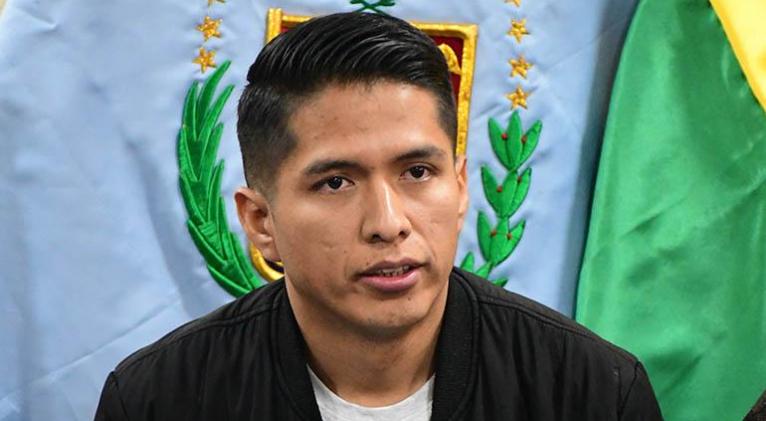La Paz Peasants Withdraw Support from Bolivia’s Alianza Popular
especiales

The presidential candidacy of Bolivian leftist hopeful Andrónico Rodríguez lost the backing of one faction of the Tupac Katari Federation of Peasant Workers of La Paz, led by David Mamani, as announced on Monday.
Mamani publicly attributed the decision to the lack of response to their demand to replace vice presidential candidate Mariana Prado, the only woman on the ticket among Bolivia’s eight registered political alliances. The group also sought the removal of communications specialist Susana Bejarano from the list of Senate candidates.
"Due to the lack of response, we have definitively resolved to distance ourselves from the Popular Pact and the political project Alianza Popular, led by Andrónico Rodríguez," stated the peasant leader.
A document sent to Rodríguez had requested the replacement of Prado and Bejarano, arguing they were "not organically elected at the union level in the national and departmental territory."
Mamani told reporters that his organization had been subjected to "deception, mockery, and blackmail" by the political front. He lamented that neither the people’s voice nor that of social organizations had been heard, accusing Rodríguez of allowing the inclusion of figures he claims represent "the new and far right."
"We cannot be complicit in these arbitrary impositions by chameleon politicians who have grown accustomed to living off the people," he said.
He further declared their "union independence and organic autonomy in service to our grassroots, no longer to any political party or current government."
The National Federation of Mining Cooperatives of Bolivia (Fencomin) joined the demand, sending Rodríguez a letter urging Prado’s replacement and proposing a candidate with broader popular support.
Mamani’s faction had been instrumental in promoting Rodríguez’s presidential bid in May. The Senate president is running in the general elections this Sunday, when over 7.9 million Bolivians will vote for president, vice president, 130 deputies, 36 senators, and nine supranational representatives, according to the current electoral roll.














Add new comment